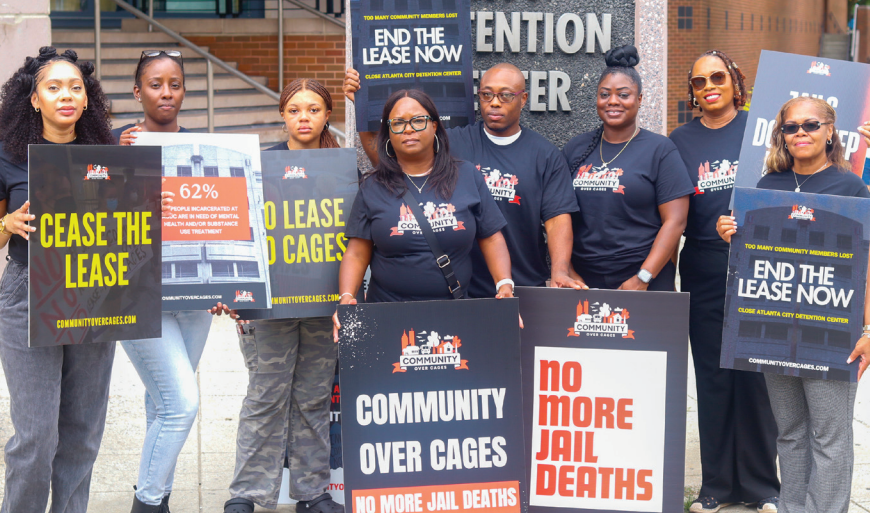Dignity in Reentry: A Groundbreaking Toolkit by Black Women Reimagining Life After Incarceration
- NBWJI

- Nov 5, 2025
- 3 min read

Overview
Over the past 30 years, the women's prison population in the United States has exploded, with much of the growth occurring among Black women. The Prison Policy Initiative estimates that 1.9 million women are released from prisons and jails each year—that means about 1 in 8 people released from prisons and more than 1 in 6 people released from jails are women. However, the availability of gender-responsive reentry services does not meet the need, especially for Black women, who are disproportionately overrepresented among women returning home from confinement. To help close the gap, the National Black Women’s Justice Institute (NBWJI) created “A Promising Practices Toolkit for Reentry Providers Supporting Formerly Incarcerated Black Women” to share recommendations for designing culturally affirming reentry services for Black women and girls.
Although culturally-affirming and gender-responsive reentry services are not widespread, they do exist, and most often are championed by formerly incarcerated leaders, like the members of NBWJI’s Sisters in Solidarity (SiS) Reentry Network. These women work tirelessly to ensure women and girls have the resources and services they need when they come home; from family reunification assistance to safe housing, they do it all. The Promising Practices Toolkit reflects the incredibly rich expertise of the SiS Reentry Network, it includes prompts, practices, and examples of gender-responsive and culturally affirming reentry services and details five key principles for supporting the needs of formerly incarcerated Black women and girls: trauma-informed, gender-responsive, community-led, culturally-affirming, and abolitionist informed.
How Does Incarceration Impact Black Women?
Black women are seven times more likely than white women to experience incarceration over their lifetime. And they encounter unique and compounded challenges when returning home after incarceration, many of which stem from their roles as caregivers and heads of households prior to prison. There are systemic factors that contribute to the challenges of reentry for Black women. Before incarceration, 53% of women were more likely to be unemployed, and nearly 30% relied on welfare. Among women who have been incarcerated, approximately 58% met criteria for substance use disorder, and about 75% have experienced domestic violence. Formerly incarcerated Black women also face discrimination in housing due to their criminal record. These challenges, along with limited access to reentry support, leave women returning to economically disadvantaged communities with inadequate preparation or resources.
Additionally, being incarcerated can result in the displacement of children, disruption of family structures, and loss of essential income, inflicting lasting harm on their families and communities. Black children are 7.5 times more likely than white children to have an incarcerated parent, which can lead to foster care placements or permanent family separation.

Reentry programs aren’t optional; they’re essential for interrupting cycles of incarceration. Programs must acknowledge and address how race and sex intersect to influence the lives of formerly incarcerated Black women. Reentry services should aim to preserve families and offer community care, especially for incarcerated mothers who bear the trauma of separation from their children while often being their family's sole support.
Our Solution
This is why we created our "A Promising Practices Toolkit for Reentry Providers Supporting Formerly Incarcerated Black Women" informed by SiS Reentry Network experts.
It builds on existing scholarship, tools, and best practices in the field, while uplifting the expertise and needs of Black women who have survived incarceration, rebuilt their lives, and are now leading systemic change. Their wisdom, strategies, and practices form the backbone of this toolkit, ensuring that reentry support is not only effective but rooted in dignity, healing, and liberation.
We encourage service providers, advocates, policy makers, and anyone supporting formerly incarcerated Black women and girls to download the toolkit and apply its guiding principles to your work.



